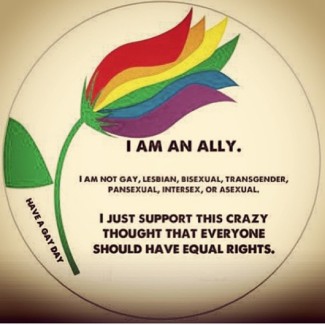Appeals Court Reinstates Anthony Elonis’ Conviction For Threats On Facebook
Last year, this case caught much attention and I was informed by some victims of cyberharassment that law enforcement used the case decision as an excuse to not pursue charges for online threats. Some internet trolls were happy with the U.S. Supreme Court decision, assuming it addressed free speech. The decision did not. Rather, it addressed the reasonable person standard in the jury’s instructions, finding that the standard should have been reckless disregard.
“A U.S. appeals court has reinstated the conviction of a Freemansburg man who made threatening comments against his estranged wife and others on Facebook but defended them on free speech grounds as rap lyrics.”
“The ruling comes after the U.S. Supreme Court said the jury in the 2011 trial of Anthony Elonis was erroneously instructed and should have weighed Elonis’ intent in making the posts and not just their content.”
“The high court said the fact that people who read the posts found them threatening wasn’t enough to support his conviction, and to get a guilty verdict, prosecutors had to prove that the messages were intended as threats.”
“But on Friday, the 3rd U.S. Circuit Court of Appeals in Philadelphia said no jury could doubt Elonis knew the lyrics —which included talk of killing his estranged wife, shooting up a school and cutting an FBI agent’s throat — would intimidate his targets, despite appearing under an “entertainment only” disclaimer.”
“Based on our review of the record, we conclude beyond a reasonable doubt that Elonis would have been convicted if the jury had been properly instructed. We therefore hold that the error was harmless, and uphold his conviction,” the court’s ruling said.”
 In the October 28, 2016 ruling, the appeals court said Elonis knew his posts had caused fear but continued to make them.
In the October 28, 2016 ruling, the appeals court said Elonis knew his posts had caused fear but continued to make them.
“By the time the FBI visited Elonis … he knew his former coworkers felt threatened by his posts,” the judgment said. “The chief of patrol at Dorney Park, a friend of Elonis on Facebook, felt so threatened that he enhanced park security, informed the local police and notified the FBI.”
In 2010, Elonis posted a string of Facebook messages describing violent fantasies of attacking Dorney Park and Wildwater Kingdom where he previously worked. Elonis was terminated from his job in October 2010 after accusations that he sexually harassed and intimidated co-workers. He also posted about ways of killing his ex-wife.
Elonis was arrested after posting about killing an FBI agent who had visited his home in response to another post about shooting up an unspecified kindergarten class.
In a 2011 trial, a federal jury in Philadelphia convicted Elonis of five counts of making interstate threats, and the Third U.S. Circuit Court of Appeals upheld his conviction. The Supreme Court agreed to take the case and reversed the conviction finding that the jury was not properly instructed. Elonis was sentenced to 4 years and 2 months, and 3 years of supervised release. He served 44 months in federal custody from his arrest in 2010 until his release in February 2014.
Posted on 10/29/2016, in Cases, Cyberharassment and tagged Anthony Elonis, appeal, conviction reinstated, cyberharassment, Facebook, online threats. Bookmark the permalink. 2 Comments.







































“But on Friday, the 3rd U.S. Circuit Court of Appeals in Philadelphia said no jury could doubt Elonis knew the lyrics —which included talk of killing his estranged wife, shooting up a school and cutting an FBI agent’s throat — would intimidate his targets, despite appearing under an “entertainment only” disclaimer.”
WOW!
LikeLiked by 1 person
Hey Mindyme!
As some say, the justice system moves slowly. When SCOTUS first entered its decision, trolls thought it was a win for them. Some lay folks wrote articles that interpreted the decision to address rights of free speech. But, the case was not about that at all. It was about “reasonable person” in the jury’s instructions.
There was evidence in the case that the parties were fearful because of what Elonis posted. So, when the case went back, the judges decided that the jury instructions were not a problem because Elonis’ postings caused his victims to be fearful and alarmed. Elonis posted threats against real people. It was not entertainment for them.
LikeLike